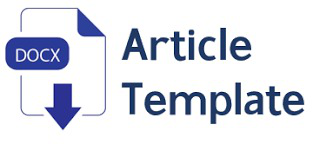Judgement without Sanction on Corporation's Forest Burning; Judges and In Dubio Pro Natura Principle in Indonesia
DOI:
https://doi.org/10.14421/sxyk5019Keywords:
Judgement, Forest Burning, In Dubio Pro Natura PrincipleAbstract
This study aims to analyze judges' decisions related to forest fire cases. More specifically, it seeks to analyze the judges' reasoning based on the principles of justice, legal certainty, and public interest, as well as the application of the principle of in dubio pro natura in environmental damage cases. Forest and land burning for plantation purposes continues to increase, and legal efforts and law enforcement face numerous obstacles in terms of evidence. As a result, many forest and land burning cases go unpunished. The decision No. 233/Pid.b/Lh. 2020/Pn.Pbu and the cassation decision No. 3840 K/Pid.Sus.Lh/2021 acquitted the defendant PT S of liability for the forest and land fire incident. To analyze this case, the study uses Gustav Radbruch's theory of the purpose of law, which includes justice, legal certainty, and utility. The decisions of the first-instance court and the cassation court failed to adequately consider the principles of justice and utility, particularly regarding environmental protection. Although the principle of “in dubio pro natura” was applied, the judges' decision relied more on the logic of legal certainty, which only determines the decision based on evidence presented in court rather than the actual facts on the ground where the forest fire occurred. The principle of precaution was ignored by the defendant and overlooked by the judges.
References
Absori. Hukum Penyelesaian Sengketa Lingkungan Hidup, Sebuah Model Penyelesaian Sengketa Lingkungan Hidup Dengan Pendekatan Partisipasi. Surakarta: Muhammadiyah University Press, 2009.
Ali, Mahrus. “Pola Pemberatan Ancaman Pidana Berbasis Konservasi Lingkungan Hidup: Kajian Atas Undang-Undang Di Bidang Lingkungan Hidup.” Supremasi Hukum: Jurnal Kajian Ilmu Hukum 1, no. 2 (January 28, 2020). https://doi.org/10.14421/sh.v1i2.1887.
Arifin, Ridwan, and Siti Hafsyah Idris. “In Dubio Pro Natura: In Doubt, Should the Environment Be a Priority? A Discourse of Environmental Justice in Indonesia.” Jambe Law Journal 6, no. 2 (December 4, 2023): 143–84. https://doi.org/10.22437/jlj.6.2.143-184.
ATIQAH, DEWI. “Peran Hakim Dalam Mewujudkan Asas Keadilan, Kepastian Hukum Dan Kemanfaatan Putusan.” Pengadilan Agama Purwodadi, 2023. https://pa-purwodadi.go.id/index.php/26-halaman-depan/artikel/358-peran-hakim-dalam-mewujudkan-asas-keadilan-kepastian-hukum-dan-kemanfaatan-putusan.
Chew, Yee Jian, Shih Yin Ooi, Ying Han Pang, and Kok-Seng Wong. “A Review of Forest Fire Combating Efforts, Challenges and Future Directions in Peninsular Malaysia, Sabah, and Sarawak.” Forests 13, no. 9 (September 1, 2022): 1405. https://doi.org/10.3390/f13091405.
Freestone, David. “THE ROAD FROM RIO: INTERNATIONAL ENVIRONMENTAL LAW AFTER THE EARTH SUMMIT.” Journal of Environmental Law 6, no. 2 (1994): 193–218. https://doi.org/10.1093/jel/6.2.193.
Ilyas, Amir, and Muhammad Nursal. “Kumpulan Asas-Asas Hukum.” Jakarta: Rajawali Pers, 2016.
Imamulhadi, Mr. “PERKEMBANGAN PRINSIP STRICT LIABILITY DAN PRECAUTIONARY DALAM PENYELESAIAN SENGKETA LINGKUNGAN HIDUP DI PENGADILAN.” Mimbar Hukum - Fakultas Hukum Universitas Gadjah Mada 25, no. 3 (March 31, 2014): 416. https://doi.org/10.22146/jmh.16070.
Kalianda, Karli H, Seven Febrina Lumbantobing, Triatmoko Agung Wirawan, Ahmad Yasin, Gt Yoeslian Noor, and Edu Marpaung. “PEMBAKARAN HUTAN DAN LAHAN: STUDI PUTUSAN HAKIM PENGADILAN NEGERI PANGKALANBUN NOMOR: 233/PID. B/LH/2020/PNPBU.” DE JURE Critical Laws Journal 3, no. 2 (2022): 84–97.
Mahkamah Agung Republik Indonesia. Putusan Kasasi Mahkamah Agung Republik Indonesia Nomor 3840K/Pid .Sus.Lh/ 2021 (2021).
Manullang, E. Fernando M. “Misinterpretasi Ide Gustav Radbruch Mengenai Doktrin Filosofis Tentang Validitas Dalam Pembentukan Undang-Undang.” Undang: Jurnal Hukum 5, no. 2 (December 30, 2022): 453–80. https://doi.org/10.22437/ujh.5.2.453-480.
Mufidah, Rifqiya Hidayatul. “Diskursus Pemikiran Fikih Lingkungan Ali Yafie Dan Mujiono Abdillah.” Supremasi Hukum: Jurnal Kajian Ilmu Hukum 5, no. 1 (June 30, 2016). https://doi.org/10.14421/sh.v5i1.1998.
Nugroho, Wahyu. “Urgensi Penegakan Hukum Lingkungan Dalam Menjaga Harmonisasi Ekogologi Di Indonesia.” In Kepemimpinan Manajemen Lingkungan Yang Berkelanjutan Dan Ramah Ligkungan, 76. Purbalingga: Eureka Media Aksara, 2024.
Pasai, Miswar. “Dampak Kebakaran Hutan Dan Penegakan Hukum.” Jurnal Pahlawan 3, no. 1 (2020): 36–46.
Pengadilan Negeri Pangkalan Bun. Putusan Nomor 233/Pib.B/Lh/2020/PnPbu (2020).
Radbruch, Gustav. Rechtsphilosophie. Leipzig: Verlag von Quelle & Meyer, 1932.
Rustamaji, Muhammad, and Bambang Santoso. “SUMBER DAYA LAUT INDONESIA DALAM KANCAH MASYARAKAT EKONOMI ASEAN, ANTARA JEBAKAN REIFIKASI DAN DEEP ECOLOGY.” Jurnal Media Hukum 21, no. 1 SE-Articles (June 30, 2014): 13. https://doi.org/10.18196/jmh.v21i1.1164.
Sagama, Suwardi. “Analisis Konsep Keadilan, Kepastian Hukum Dan Kemanfaatan Dalam Pengelolaan Lingkungan.” MAZAHIB 15, no. 1 (December 15, 2016). https://doi.org/10.21093/mj.v15i1.590.
Triana, Nita, Ade Tuti Turistiati, and Lincoln Monk. “Progressivity of Judges in Using The Principle of Strict Liability as A Legal Reasoning in Forest Fire Cases.” Varia Justicia 19, no. 2 (2023): 116–33.
Tuhulele, Popi Tuhulele. “Kebakaran Hutan Di Indonesia Dan Proses Penegakan Hukumnya Sebagai Komitmen Dalam Mengatasi Dampak Perubahan Iklim.” Supremasi Hukum: Jurnal Kajian Ilmu Hukum 3, no. 2 (November 30, 2014). https://doi.org/10.14421/sh.v3i2.1973.
Wahyuni, Herpita, and Suranto Suranto. “Dampak Deforestasi Hutan Skala Besar Terhadap Pemanasan Global Di Indonesia.” JIIP: Jurnal Ilmiah Ilmu Pemerintahan 6, no. 1 (March 25, 2021): 148–62. https://doi.org/10.14710/jiip.v6i1.10083.
Wibisana, Andri G. “The Many Faces of Strict Liability in Indonesia’s Wildfire Litigation.” Review of European, Comparative & International Environmental Law 28, no. 2 (July 22, 2019): 185–96. https://doi.org/10.1111/reel.12284.
Wibisana, MRAG. “Law and Economic Analysis of the Precautionary Principle.” Maastricht University, Disertasi, 2008.
Downloads
Published
Issue
Section
License
Copyright (c) 2024 Mohamad Azkal Taefur; Eko Nuriyatman

This work is licensed under a Creative Commons Attribution-ShareAlike 4.0 International License.








